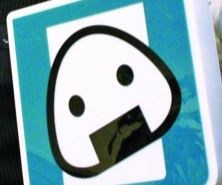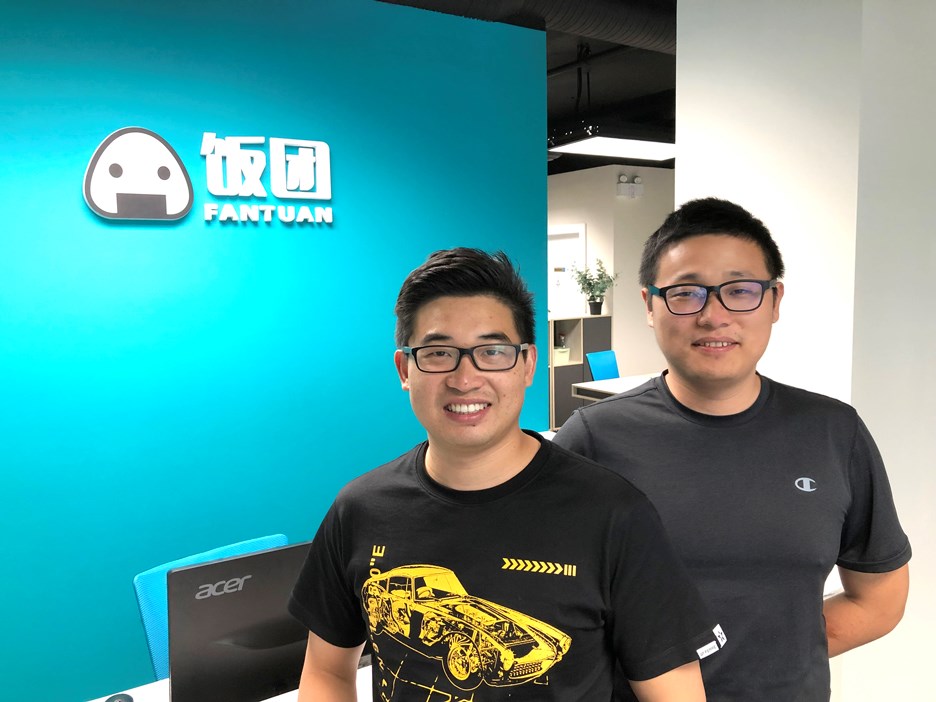When Randy Wu arrived in Canada in 2009, he ended up going to school in Saskatchewan.
Living with a host family, the weather was horrific, the food was weird and school was unsatisfying. When he looked into relocating to the West Coast, he was told that if he moved here, there was no guarantee he could transfer to a local school.
“It didn’t matter,” Wu says. “I’m someone who wants to take some risks.”
No kidding.
After Wu moved and got accepted to Simon Fraser University to study economics, he took another risk – the biggest of his life.
Wu had noticed that life for many foreign students was difficult, especially when it came to feeding themselves. One reason was that many students didn’t know their way around the areas outside of their school’s campus. Another was that few students own a vehicle.
“If you don’t have a car, you don’t have legs,” Wu says.
So he went about developing a service in which Asian students could order the food they love and have it delivered to their door.
It is called Fantuan (Mandarin for rice ball) and it grew so fast that Wu took that gigantic risk by quitting school in 2014. The risks continued when, for an entire year, he didn’t tell his parents he was no longer a student. (Wu’s sister also took a risk when she helped bankroll Fantuan: “She is my inspiration.”)
In hindsight, founding the Fantuan app – along with Feng Yaofei – wasn’t really a risk at all because the company has exploded in the past five years.
Based out of two floors of offices in South Burnaby, Fantuan now has about 50 full-time employees based in Vancouver and 350,000 registered users in 10 Canadian cities, plus Seattle.
Next month, Fantuan takes another giant leap by starting operations in New York City and Los Angeles, with a goal to be in 20 more U.S. cities by the end of 2020. There is also an English version of the app in the works before the end of the year.
Fantuan has now expanded its app from food deliveries to other features, including self-pickup (with discounts), online reviews of the restaurants it delivers for, and online shopping in which users can order grocery items and have them delivered.
The newest Fantuan feature allows users to have the app’s drivers run errands for them, like delivering flowers.
“Say you have a package that needs to be picked up in Vancouver, but you don’t have time,” says Crystal Li, Fantuan’s public relations manager. “Our drivers will pick it up for you.”
The main focus, of course, is on delivering food – mostly Chinese food. Fantuan orders are roughly 60-per-cent Chinese food and 40 per cent split between food from other Asian countries, such as Vietnam, Japan and Thailand, as well as fast-food outlets like Subway.
A person orders food from the hundreds of restaurant partners and a driver is notified through the app with a map to the eatery to pick up the food, as well as GPS directions to the customer’s home. Fantuan charges restaurants a lower percentage than other delivery apps, Li said.
Fantuan’s drivers are a mix of people who work full or part time as self-employed contractors. Some are students, but others have full-time jobs and do deliveries as a side hustle, Li said. The drivers can make more money than working for similar apps, Li said, because drivers are able to do multiple pickups at the same time. Sometimes multiple orders come to the same restaurant at the same time, or to restaurants that are closely grouped together.
Li said Fantuan works to get drivers multiple orders so they can earn more money. Drivers get to keep all of their tips, Li said, but added that they also have to pay their own gas and insurance.

“We work hard to keep our drivers happy,” said Li, adding that Fantuan has started organizing fun events for drivers, such as a recent basketball tournament.
The NOW toured Fantuan’s offices and the employees are young and exceedingly friendly. The full-time staff work with restaurant partners, the drivers and customers. If a customer has a complaint, they contact Fantuan staff, who then contact the restaurants to address issues. Other staff try out the partner restaurant’s food and write reviews to help app users navigate all of the food choices.
It’s been a whirlwind five years for Wu, who is now married and a father. After finally breaking the news to his parents (“In the beginning, there was so much disappointment,” he says.), he and Yaofei have steadily expanded to the point where they felt they were ready to try and take over America.
“Being a platform, you can’t just stay in Vancouver,” Wu says. “You have to think big.”
And take risks.



